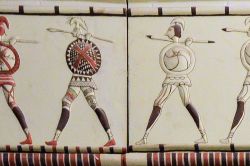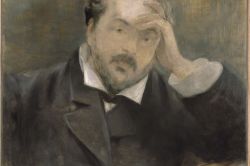VIENNA PHILHARMONIC ORCHESTRA
The Vienna Philharmonic Orchestra, founded in 1842, remains very different from any other orchestra in the world. It is run as a community—or club—rather than a business venture. In the time of globalization that defines the modern approach to collaboration in the world of classical music (meaning that musicians and conductors can unite forces regardless of the place they come from), very few orchestras still have a geographically specific sound, and yet Vienna retains its distinctive character due to its communal structure.
The VPO has no major conductor: they abandoned this idea in 1933 in favor of guest conductors. Since then, many greats have conducted for the VPO, including Wilhelm Furtwängler, Arturo Toscanini, Herbert von Karajan, Karl Böhm and Leonard Bernstein.
Tot this day, the orchestra retains its exceptional and instantly recognizable sound due to its adherence to the ideals of performance adopted in the nineteenth century. This reflects a philosophical approach to tradition, but it is also the result of the orchestra's use of era-appropriate instruments. Vienna does not add any modernized instruments and still uses the versions of the woodwinds, brass, and percussion that are identical to the ones from the time of the orchestra's inception, meaning that the sound of, say, Beethoven's works, is authentic to the one his contemporaries had the privilege of hearing.



